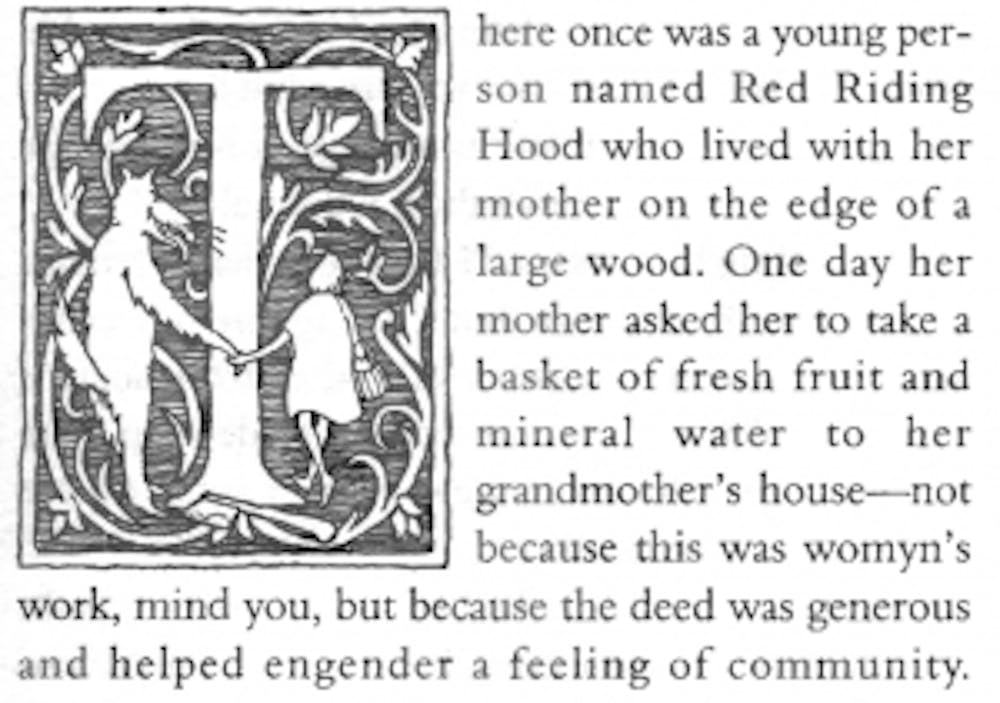It’s an era of ultra-liberalism, where users on social media platforms such as Tumblr and Instagram have biographies riddled with labels that add color in a few quick words to identify them, empower them.
Feminist. Genderqueer. Bisexual. Independent.
This trend of labels enables everyone to become a part of a subset of political culture. People’s enthusiasm and embracing of labels has led to a culture where they are not singular — which is both good and bad.
Overall subscription and identification to labels has led to the demystifying and destroying of stereotypes. Feminists aren’t derby girls who don’t shave their armpits, transgender people and crossdressers are not perverts who try to sneak into the girls’ bathroom or women’s prisons. In fact, this positive reinforcement of labels and identification was happening when I was in high school, and “nerd” wasn’t “uncool” anymore.
(Side note: My professor once ranted about how weird our generation was as “nerd glasses” — glasses with the heavy black rims and rectangular shape — were called “contraceptive glasses” when he was in uni.)
Once I was conversing with a friend who identifies as gay and I stated, “I feel that bisexual and pansexual are somewhat the same — why do we need two terms?”
Immediately, he responded hot and fast, “Are you bi? Are you pan?”
To my response of “no,” he said, “You can’t say that then.”
Personally, I began to feel flustered and annoyed in response. I tried to bite down my ire when I asked why not. My friend replied, tone pedantic, “Well, unless you are bi or pan or read the proper literature, then you cannot have an opinion.”
Afterwards, I felt very irritated. I hadn’t been seeking a fight. Yes, I do not necessarily identify to both of those labels, but what I had really wanted was to have a conversation. Not have my opinion stated as invalid due to who I am. What is “proper”?
I wanted to ask him why he felt like he had the right to devalue my opinion and thoughts? Did being gay and a member of the LGBT community give him the right to silence my opinion?
On the other side of the spectrum, I am sure many people have faced this moment with someone of an older generation who states their mind brazenly. Recently, while visiting home, my grandmother pinched my cheek and declared, “You cannot date a black man.”
Instantly my younger sister, who is 14, got defensive, “You can’t say that. You’re being racist.”
My grandmother huffed, turning on my sister, “Well. Do you like black men? Find them attractive?”
“Not really, but — ”
“Well. Then aren’t you a racist too?” My grandmother fixed her glass of wine in her hand. My sister walked away in huff, refusing to answer.
The labeling habit that has cultivated in the Politically Correct Culture (PCC) can just as quickly shun someone. Bigot. Racist. Homophobe. Slut.
My sister tried to silence my grandmother by slapping a label over her mouth.
PCC makes us second guess ourselves. We police ourselves and are afraid of being labeled by our peers as regressive. I have been told that PCC is the protocol to be a decent human being. But I disagree on the idea that PCC is unerringly good for the collective.
By policing our opinions and following the majority’s “correct” opinion, we deprive ourselves of constructing opinions with evidence. Dissension is needed at times. We need to have the strength to form opinions and disagree, or to improve our understanding of why we agree with majority opinions or social movements.
By policing ourselves and not airing contrary opinions, we lower the intellect of those around us, we become part of a mob mentality that follows the loudest voice.
Disrupt, dissent, don’t be afraid to voice your opinion.
Sofia Diez is a senior Mechanical Engineering major from Fairfax, Virginia.





